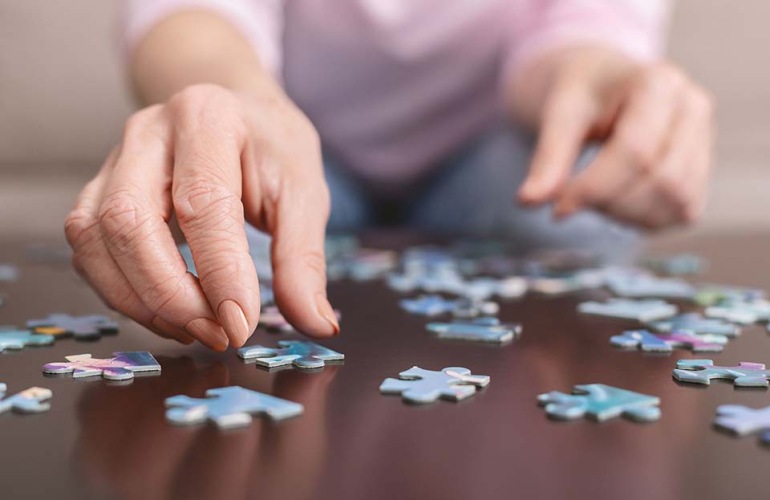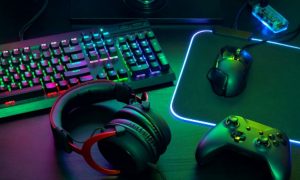Why Puzzle-Solving is the Ultimate Brain Workout

The Allure of the Challenge
Have you ever found yourself completely engrossed in a task, hours melting away as you meticulously fit pieces together, decode a cryptic message, or strategize your next move? Perhaps it’s the quiet satisfaction of seeing a blank Sudoku grid slowly fill with numbers, the triumphant click of the final piece in a complex jigsaw, or the collaborative adrenaline of escaping a themed room with seconds to spare. That profound sense of accomplishment, born from wrestling with a challenge and emerging victorious, is universal.
For centuries, across cultures and generations, humans have been drawn to puzzles. They tap into a fundamental aspect of our nature: the desire to understand, to organize, and to conquer the unknown. But this isn’t just about fleeting entertainment. Beyond the sheer enjoyment, the act of puzzling is a powerful and accessible form of cognitive exercise, constantly pushing the boundaries of our mental capabilities. This blog post will explore why engaging with puzzles, from the solitary solace of a crossword to the thrilling team dynamics of an escape room, isn’t just a pastime – it’s arguably the ultimate workout for your brain, keeping it sharp, agile, and resilient.
The Science Behind the Brain Boost
What makes puzzles so beneficial for our minds? The answer lies in neuroplasticity, the brain’s remarkable ability to reorganize itself by forming new neural connections. Puzzles actively stimulate this process, forcing your brain to create new pathways and strengthen existing ones. This translates to a boost in several key cognitive functions:
Problem-Solving Skills:
Puzzles train you to break down complex problems into smaller, more manageable steps, a skill valuable in all aspects of life.
Logical Reasoning:
Whether it’s deductive or inductive reasoning, puzzles demand you think critically and strategically.
Memory (Working & Long-Term):
You’ll find yourself remembering patterns, rules, and strategies, improving both your short-term and long-term memory.
Attention & Concentration:
Puzzles require sustained focus, helping you filter out distractions and improve your concentration.
Pattern Recognition:
Identifying recurring elements and sequences is crucial for puzzle success and enhances your overall cognitive agility.
Spatial Reasoning:
Visual puzzles, in particular, improve your ability to understand and manipulate objects in space.
A Spectrum of Puzzles, A Spectrum of Benefits
The beauty of puzzle-solving lies in its variety. Different types of puzzles offer different cognitive benefits:
Logic Puzzles (e.g., Sudoku, Crosswords, Logic Grids):
These sharpen your analytical thinking, deduction skills, and word recall, boosting verbal fluency and critical thinking.
Spatial Puzzles (e.g., Jigsaw Puzzles, Tangrams, Rubik’s Cube):
These emphasize visual-spatial skills, planning, and motor coordination, fostering abstract thinking and creativity.
Strategy Games (e.g., Chess, Go, Bridge):
These challenge you with long-term planning, foresight, risk assessment, and decision-making, improving strategic thinking and impulse control.
Word Puzzles (e.g., Scrabble, Anagrams, Word Searches):
These focus on vocabulary expansion, linguistic fluency, and quick recall, enhancing your communication skills. And let’s not forget the collaborative fun of an escape room, where teamwork and communication are key to solving the puzzles and escaping!
Beyond Cognitive Gains: Holistic Well-being
The benefits of puzzles extend beyond cognitive function. They contribute to our overall well-being:
Stress Reduction and Mindfulness:
The focused nature of puzzle-solving can be a form of meditation, calming the mind and providing a healthy distraction from daily worries.
Enhanced Mood and Self-Esteem:
The dopamine rush you get from solving a puzzle is a powerful mood booster, and successfully completing a challenge builds confidence.
Social Connection:
Collaborative puzzles and games, like escape rooms or board games, offer the joy of working together or competing in a friendly manner, strengthening relationships.
Integrating Puzzles into Your Routine
Ready to unlock your brain’s potential? Here are some tips for getting started:
- Start with puzzles you enjoy and that are appropriate for your skill level.
- Set aside dedicated time for puzzle-solving.
- Explore different types of puzzles to find what you like.
- Don’t be afraid to struggle – that’s where the growth happens.
- Consider both online apps and physical puzzles.
- Engage consistently for long-term benefits.
Unlock Your Brain’s Potential
As we’ve explored, the world of puzzles offers far more than simple amusement. From the quiet contemplation of a Sudoku to the high-stakes pressure of an escape room challenge, each puzzle type serves as a unique exercise for your most vital organ. We’ve seen how engaging your mind in these intricate tasks actively promotes neuroplasticity, building stronger neural pathways and enhancing critical functions like problem-solving, memory, logic, and attention. This isn’t just about fleeting moments of “brain-training”; it’s about fostering sustained cognitive agility and resilience that can benefit every area of your life.
Beyond the undeniable cognitive gains, the act of puzzling also contributes significantly to your overall well-being. It serves as a calming mindfulness practice, a healthy outlet for stress, and a reliable source of self-esteem as you conquer each challenge. Whether enjoyed solo or shared with friends and family, puzzles offer a profound sense of accomplishment and connection.
So, don’t underestimate the power of a good puzzle. It’s a joyful, accessible, and incredibly effective way to keep your mind sharp, adaptable, and vibrant for years to come. In an increasingly complex world, a well-exercised brain is your greatest asset. Why not pick up that crossword, start that jigsaw, or gather some friends for an adventure in an escape room? Your brain will thank you for the ultimate workout. Unlock its full potential, one captivating puzzle at a time!








